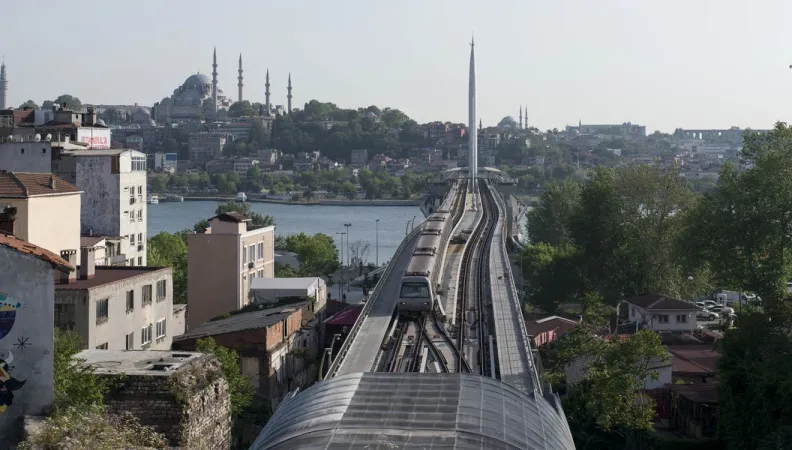Share the page
Finance the extension of metro M4 and M10 lines in Istanbul
Project


-
Project start date
-
Status
Ongoing
-
Project duration
-
10 years
-
AFD financing amount
-
€ 86 000 000
-
Country and region
-
Location
-
Istanbul
-
Type of financing
-
Beneficiaries
-
Istanbul Metropolitan Municipality
A megalopolis straddling Europe and Asia, one of the most congested cities in the world, Istanbul is pursuing an ambitious policy of extending its metro lines, supported for more than 10 years by several loans from AFD.
Context
A megalopolis of around 15 million inhabitants, Istanbul is characterized by a structurally difficult urban context. Within a very rugged territory, urban growth is very strong and trips are made over long distances. In this context, the first investment item for the Istanbul Metropolitan Municipality (IMM), i.e. over one billion euros per year, is dedicated to the development of more carbon-efficient urban transport networks with priority given to rail modes. This urban development policy has already benefited from 3 loans from AFD.
The extensions of lines M4 and M10 metro lines will link the Pendik and Tuzla neighborhoods on the Asian side, which have nearly one million inhabitants, and have recorded strong economic and demographic growth.
Description
The project provides for the construction of the Kaynaca Merkez -Tuzla Tersane segment (6 stations) and the Kaynarca Merkez-Pendik Merkez segment (2 stations). With this project, the Metropolis wishes to improve connectivity on the Asian side and create new centralities around the Tuzla and Pendik stations, in line with its polycentric urbanization strategy which aims for a balance between the coasts of Marmara (east-west axis) and inland, i.e. a decentralization of the metropolis compared to the current situation. The project will also improve accessibility to the Sabiha Gökçen airport.
Impacts
The purpose of this project is to contribute to a sustainable urban development of the Istanbul metropolis through an efficient and low-carbon mode of transport, which should generate a modal shift from road modes (bus, minibus and private car).
The socio-economic assessment of the program highlights several advantages, local and global: time saving for all categories of travelers, but also reduction of congestion, reduction in the use of buses, minibuses and individual vehicles, reduction of local pollution and reduction of CO2 emissions by 13,000 tons/year. The metro being a mode of transport adapted to the density and shape of the city, the internal economic rate of return is very positive, around 16%.


